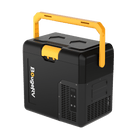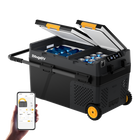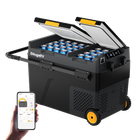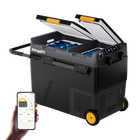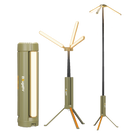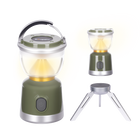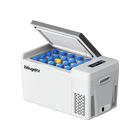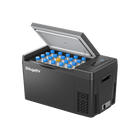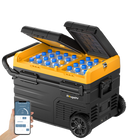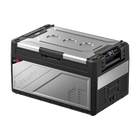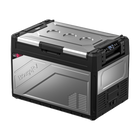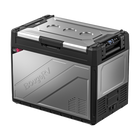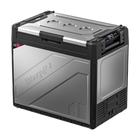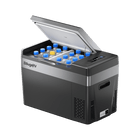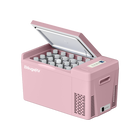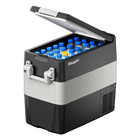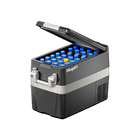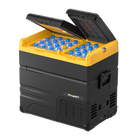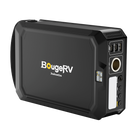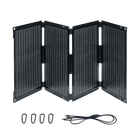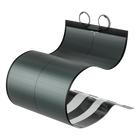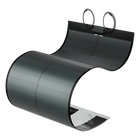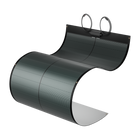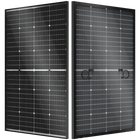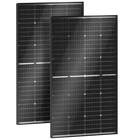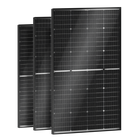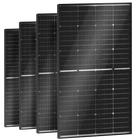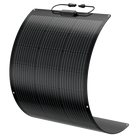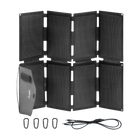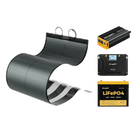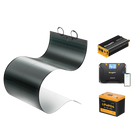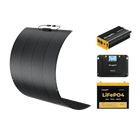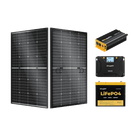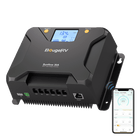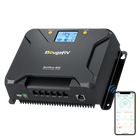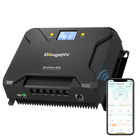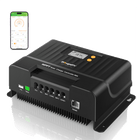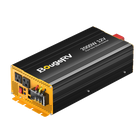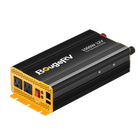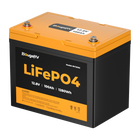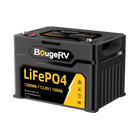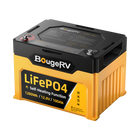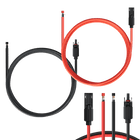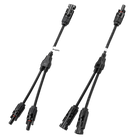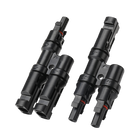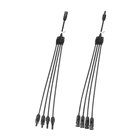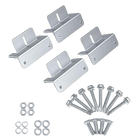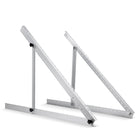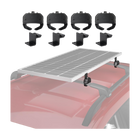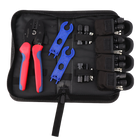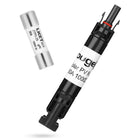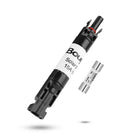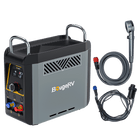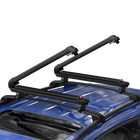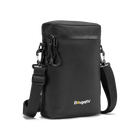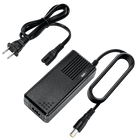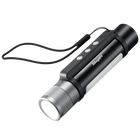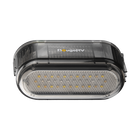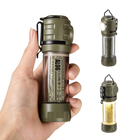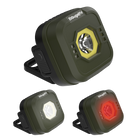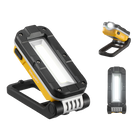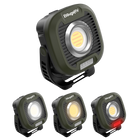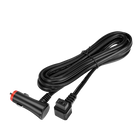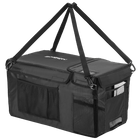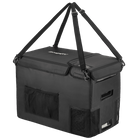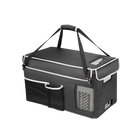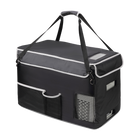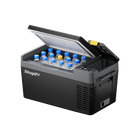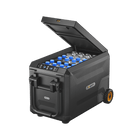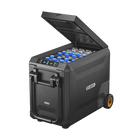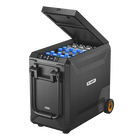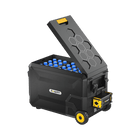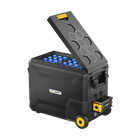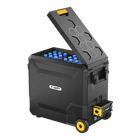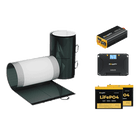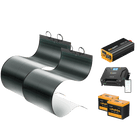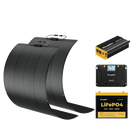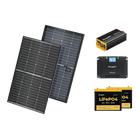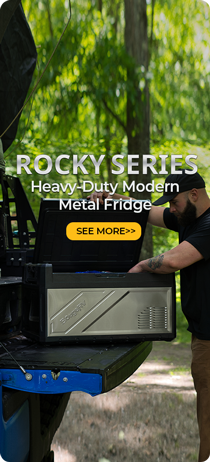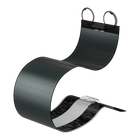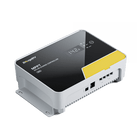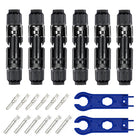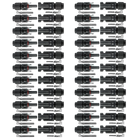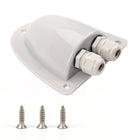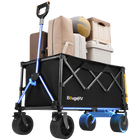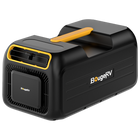How to Live off the Grid: The Best Guide

Living off the grid has become a choice for more and more modern people, who move away from the noisy concrete city to a quiet place in the Midwest or an idyllic rural area where they can start their life and work again. I'm sure you read this article and have this same desire for freedom.
Off-grid living means a minimalist, efficient, self-reliant lifestyle. While it can be challenging to set up off-grid living equipment at first, fortunately, to help you better start your off-grid living journey, we've put together a series of tips and strategies for you to indeed start your journey to freedom.
How to Start Living off the Grid - These Are the Things You Need to Know
Living off the grid means different things to different people; some may only install solar panels, while others may need to install a water conservation system. But whichever situation you fall into, living off the grid means you are responsible for your needs. This includes housing, food, water, electricity, sanitation, and health care. Preparing for the necessities of off-grid living is an ongoing effort.
- Land
- House
- Install a solar power system
- Water and water collection systems
- Learn to grow and produce your food>
- Hunting or gathering food from the land
- Drainage and septic systems
- Save and earn aggressively
Land
You will need a place to stay. This is the first and most basic requirement if you want to stay off-grid.
In getting land for your new life, look for the land you can afford in a location that suits you. A suitable location is a location that is far from cities and the population.
In this land, you will construct your homestead. Ensure that you insist on having all the basic information about the local laws that guide the purchase and use of land.
When you get good land in a choice location, look out for covenants, check for the zoning ordinances with county planning, and check out what the land has been used for previously.
Another important factor to look out for is access to the road, secluded and insured. If you check all these boxes below, you are sure to have a good place and can now begin to put other things in place.
- Away from the busy city, either suburban or rural.
- The land must have trees and water so that you can use these resources.
- Know if the land has road access so that you can enter and exit freely.
- There are clear property tax and zoning laws for the land, and you may have to pay a certain annual tax on the land.
House
You have several options when planning to find a house for off-grid living.
Purchase existing off-grid housing: As mentioned above, some suburban areas or rural areas can offer free land in exchange for long-term residency. If the residents move out, but the house still exists.
However, such a house often needs some repairs, and there may be some overhead. Overall, choosing an existing off-grid home will still be cheaper and less time-consuming than building a new one.

Build your own small off-grid home: Building a large off-grid home from scratch is not realistic for beginners. Building a small off-grid home would be a more reasonable solution.
When you're ready to build a small house, you'll need building materials, and those materials come from contractors on the site, which will have the sheetrock, lumber, glass panels, and roofing you need. Of course, you can look for building materials directly near the location of the land to ensure that you can build a satisfactory small off-grid home.
Living inside a camper or RV (for short-term experience): Making an RV your off-grid living shelter is also a preferable way to go. If you don't have an RV before, you can choose to rent one and park it on top of the land you've applied for off-grid living on.
Since the RV is equipped with many of the essential amenities for living inside, such as a kitchen, sleeping area, shower room, and bathroom, this can save you a lot of the process of preparing for off-grid living.
Join an off-grid community: There are communities all over the world, and it may be a good option to join the corresponding community, as this way, you can be assured of living off-grid while staying in touch with others.
Install a solar power system
After you have purchased land, your next aim should be providing power for your homestead. A life out of the grid also needs basic electricity to power some appliances.
You can purchase solar panels from any reliable store or make a direct company order. These solar panels can be delivered to you before you move to your new location.
When you have all you need, you can now set out to install the solar panel. Before you begin the installation of these solar panels, make sure you have all the necessary tools required to do so.
A toolbox would be adequate to cater to all your needs in times like this. But first, make sure you fix your solar panel in places where you are sure that direct sunlight can fall on them.
These panels have the greatest efficiency when direct sunlight falls on them. But first, determine the size of the solar system you require by finding what the wattage of all the appliances you plan to use sum up to be.
Look out for the installation and follow it carefully. Basic electrical appliances to carry with you to an off-grid life depend on your needs. Therefore, it is recommended that you carry with your appliances that significantly impact your sufficiency.
Fortunately, the BougeRV team serves a large number of off-grid living enthusiasts who are very satisfied with the products in our solar line.
We have accumulated no less than 10w positive customer reviews for our solar series products across the web. Check them out here:
https://www.bougerv.com/collections/solar-panels. The BougeRV team is focused on giving customers the confidence to build their off-grid energy, so they can install the corresponding solar energy system and enjoy the freedom of nature. System and enjoy nature's scenery freely.
At the same time, BougeRV's after-sales team will do its best to serve you. For more solar-related content, take a look at the blog we have prepared for you: https://www.bougerv.com/blogs/article.

Water and water collection systems
In addition to the solar system described above, a good source of clean drinking water is critical to off-grid living. On land away from urban areas, you can potentially use the city's water source directly, so you must choose a site with a natural water source or easy access to transport water.
As a general rule, you can consider using a water harvesting system. Such a system can be used for cell phones and store rainwater and then process this natural water for daily use.
You can also purchase one for less than $100. But remember, to reduce the risk of illness, it's best to check the CDC's guidelines for safe water use after using the collected rainwater.
Here are some tips for reducing water costs:
- Collect as much rainwater as possible.
- Take shorter showers. Perhaps you might consider showering at the gym.
- Keep a 5-gallon bucket in the shower to hold tap water when you find the right shower temperature. Use this water for plants or to flush the toilet.
- Put a clean dishpan in the kitchen sink to hold running water while you wash your hands and rinse your vegetables. Use this water for your garden or washing dishes.
- Install water-efficient showerheads, faucets, and toilets.
Of course, if you want to live off the grid, you can try living without any water system and walk to a nearby body of water to get water. However, this is not a sustainable long-term option.
Learn to grow and produce your food
Having your food is an invaluable need for off-grid life. Therefore, you must grow your food during this period. This process might be tedious, but it is essential to complete the circle.
It would be best if you learned a lot; this lesson ranges from soil health, seedling, planting, and nurturing to harvest and possibly storage.
Knowing your soil is the first step to getting your food off the grid. The kind of soil you have can determine the type of food grown. It will also determine how much work you need to put in to grow a preferred type of food.
There are three types of soil. It would be best to scoop some into a transparent jar and mixed with detergent and water. Shake vigorously and allow to stand for a day.
The next step is for you to choose a technique that is cheap and helpful. The no-till, no-gardening technique will do you a lot of good. In this technique, the previous soil surface is turned over to form the lower layer of the soil.
After this process, you should provide adequate water to wet the soil. You can choose several options; it is best to choose whichever suits your off-grid life.
You can deploy an irrigation pipe, use the slope of the land or use the force of gravity to bring water from a nearby stream.
The next step is for you to grow what you eat. Start by knowing what traditionally grows in the area and compare them with what you want, then plant those traditional foods that align with your taste.
Remember to mix your crops to improve the yield during the planting season. Have a variety of plants like roots, herbs, vegetables, and grains.
Here are some conditions suitable for growing food:
- About 4,000 square feet (370 m 2 ) of growing space to grow enough food to feed one person for a year.
- It's a good idea to invest in a heavy-duty refrigerator that will keep your food cold for a few days if the power goes out.
- Even if you don't plan to go completely off the grid, choosing to grow your food will allow you to be self-sufficient.
Hunting or gathering food from the land
There are other important needs that the soil cannot provide. These needs include fish, meat, milk, and eggs.
You can make provisions for these items by hunting or rearing them yourself. For example, if you live close to a stream, you could turn to fish to get fish. If you go off the grid to regions where you can find animals roaming, you may hunt.
In any case, it would be best to know the existing laws concerning hunting, possession of firearms, and animal rights. This law will help you know what to do if you choose hunting.
However, you can decide to rear your livestock. This option is highly recommended for several reasons. It ensures a constant supply of your needs, provides for other aspects of your off-grid living, and raises money to keep you financially stable.
Common animals you can rear include birds, goats, sheep, pigs, and horses. You can start small, the aim is to become self-reliant.

Here are some suggestions for obtaining meat on land:
- Hunting and fishing. Hunting, trapping, and fishing can provide protein for your diet. Make sure to follow all hunting and firearms rules where you live.
- Get food from your environment. In some specific seasons, nature can be a direct source of our food. For example, in the summer and fall, wild berries from good fruit trees can be an abundant source of ready-to-eat food. You can buy a botanical book with illustrations to see what fruits, nuts, and berries that are safe to eat are growing within your area.
- Go to the grocery store and buy supplies. At this point, you don't need to rely on your ability to get meat, just spend the money.
Drainage and septic systems
One of the more difficult aspects of living off the grid is finding a way to safely dispose of your waste and sewage. This is when you might consider installing a septic system.
A septic tank is a watertight chamber that can collect sewage without a sewer system. While the solid waste remains in the tank, the liquid is discharged into the surrounding leach field.
Since installing a septic tank requires more specialized knowledge, the best way to install a septic system is to hire a professional to come over and install the system.
Whenever the septic system is full of solid waste, it needs to be emptied periodically with a vacuum truck. Typically, installing a septic system costs between $2,000-$10,000.
Save and earn aggressively
An off-grid life does not eliminate spending. On the contrary, it reduces the amount of money you spend but does not eliminate them. It is usually very expensive to start up an off-grid lifestyle.
You must plan to earn some money and save some of it. You can plan to indulge in some practices that could raise money even as you live off the grid.
- Put your off-grid skills to work. You can look for suitable job opportunities in nearby areas, such as farms, park ranger stations, fire stations, campgrounds, and forestry organizations. Of course, you can also work independently or be employed by a local organization as a guide for people, providing corresponding instruction to backpackers, hikers, and rafting enthusiasts.
- Teach off-grid skills to others.As I mentioned above, more and more people are interested in living off-grid, and this is where you can teach your off-grid experience on a one-on-one basis for a mutually agreed upon fee. Of course, if you have enough time and energy, you can write a book about off-grid living and sell it repeatedly in the marketplace. You can also start online courses, webinars, and Zoom seminars to impart your knowledge to more people on the Internet.
- If you have extra crops and livestock, consider selling them at the market. Many people are very interested in fresh produce, such as fresh vegetables, fruits, nuts, berries, seeds, honey, eggs, milk, meat, etc. When you have to keep in mind don't sell everything, you need to leave the seeds for the next season's crop.

Physical and mental preparation
Off-grid living can be demanding. Therefore, the need to adequately prepare for this life is essential. Most preparations are usually financial, but mental and physical preparation is also crucial.
If you consider an off-grid lifestyle, you must know that it is an entirely different terrain to venture. Therefore, one crucial aspect of your mental preparation is to make up your mind to adapt to any situation.
This mindset will condition your thinking toward preparing for all outcomes. It also seeks to keep you on your toes to remain innovative as you live there.
Another important mental preparation you should have is finding books and literature about an off-grid life. Read everything you can find. This study gives you an idea of what to expect when you venture off the grid. In addition, you can pick up specific themes to read about.
These themes include first aid treatment for common and minor illnesses, keeping alert and providing security, common first aid for your livestock, and many other topics.
Find a community of people who live off the grid. Some people are no longer in contact with the outside world but in contact with themselves. Join such a community and live among them.
Another form of preparation you should imbibe is physical preparation. Living off the grid will demand a lot of energy from you. Therefore, you must seek to remain physically fit and alert. Prepare to indulge in daily activities that keep you fit. You can even make provision for an off-grid gym.
Final Thoughts
What does living off-grid mean to you? Everyone will have their own reasons for wanting to live off-grid, but one thing we know for sure - when you decide to start living off-grid, you have the potential to have a more sustainable, independent, and rewarding lifestyle.
Fortunately, the BougeRV team offers a variety of reliable and affordable solar rechargeable battery kits for your off-grid lifestyle. Just click on us: https://www.bougerv.com/collections/solar-panels to see the solar kits you need for off-grid living, including solar panels, solar generators, solar chargers, and more. We'll do our best to keep your off-grid life safe.







